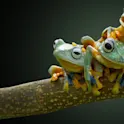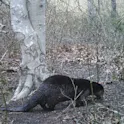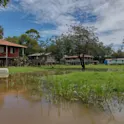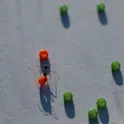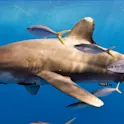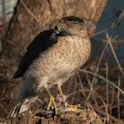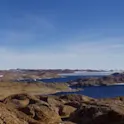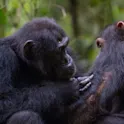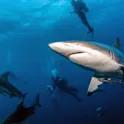Swarm intelligence directs longhorn crazy ants to clear the road ahead for sisters carrying bulky food
Scientists studied the obstacle-clearing behavior of longhorn crazy ants, where a subset of workers temporarily specializes in removing tiny objects blocking the path between the nest and large food items. Experiments revealed that serial clearing behavior can be triggered by a single pheromone mark, which happened to be deposited near an obstacle by a forager recruited to a large food item. Clearing mostly occurs in the context of collective transport, which typically stalls in front of obstacles. The authors concluded that obstacle-clearing is a form of ‘swarm intelligence’ which emerges at the colony level, and which does not require understanding by individual ants.
